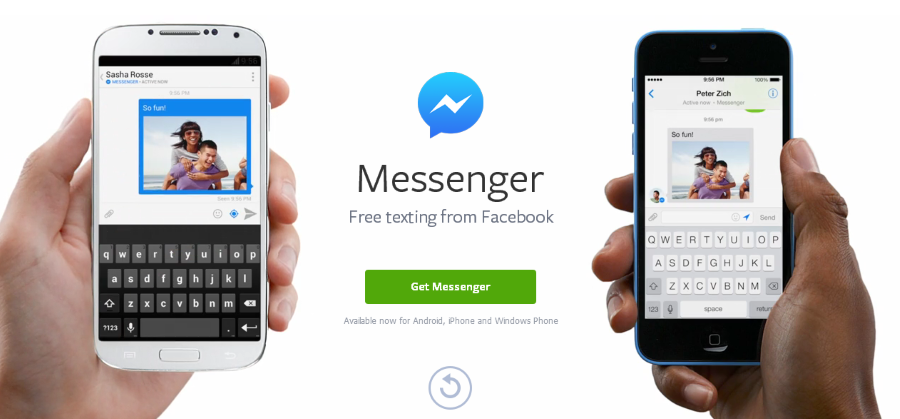
Over the coming week or so, Facebook will discontinue messaging within its main Android, iOS, and Windows Phone apps. If users want to send messages through Facebook, they will now have to do so through the company’s standalone Messenger app. This move has been in the works for a few months, and has already been implemented in Europe. The Europe test case went well enough that Facebook has decided to push Messenger on everyone. According to TechCrunch’s Josh Constine
Facebook first started requiring users in Europe to use Messenger back in April, but after seeing “positive results” in terms of engagement, its rolling out the plan to the everyone. Facebook tells me people on Messenger reply about 20% faster, and not supporting multiple version of mobile chat will help it make both its main apps and Messenger better.1
Of course there will be “positive engagement” when users are forced to adopt a new platform to continue a service they have grown accustomed to. Anyhow, the company seems to be deflecting all of this press attention, and instead notifying users directly. Facebook did, however, issue a statement to TechCrunch concerning the switch to Messenger:
“In the next few days, we’re continuing to notify more people that if they want to send and receive Facebook messages, they’ll need to download the Messenger app. As we’ve said, our goal is to focus development efforts on making Messenger the best mobile messaging experience possible and avoid the confusion of having separate Facebook mobile messaging experiences. Messenger is used by more than 200 million people every month, and we’ll keep working to make it an even more engaging way to connect with people.”2
- Josh Constine, TechCrunch, “Facebook Forces Users Worldwide To Download Messenger For Mobile Chat,” 29 July 2014 ▲
- Josh Constine, TechCrunch, “Facebook Forces Users Worldwide To Download Messenger For Mobile Chat,” 29 July 2014 ▲

